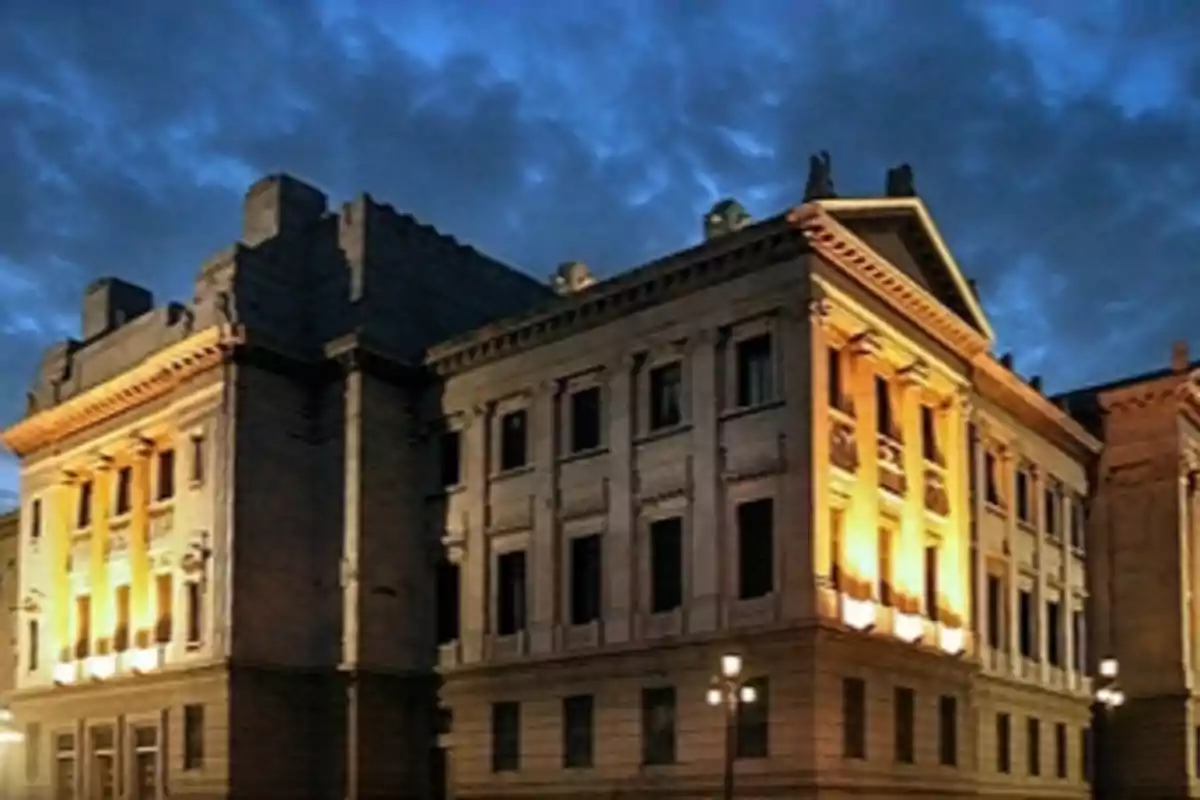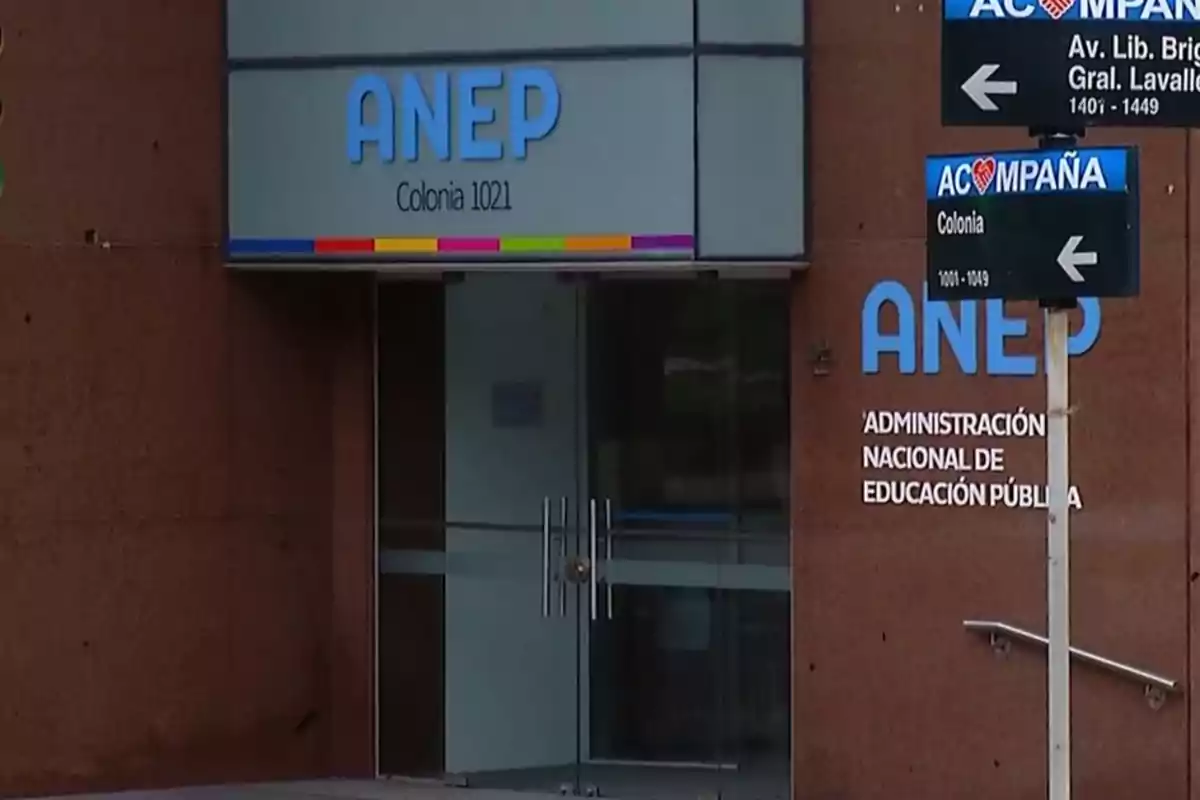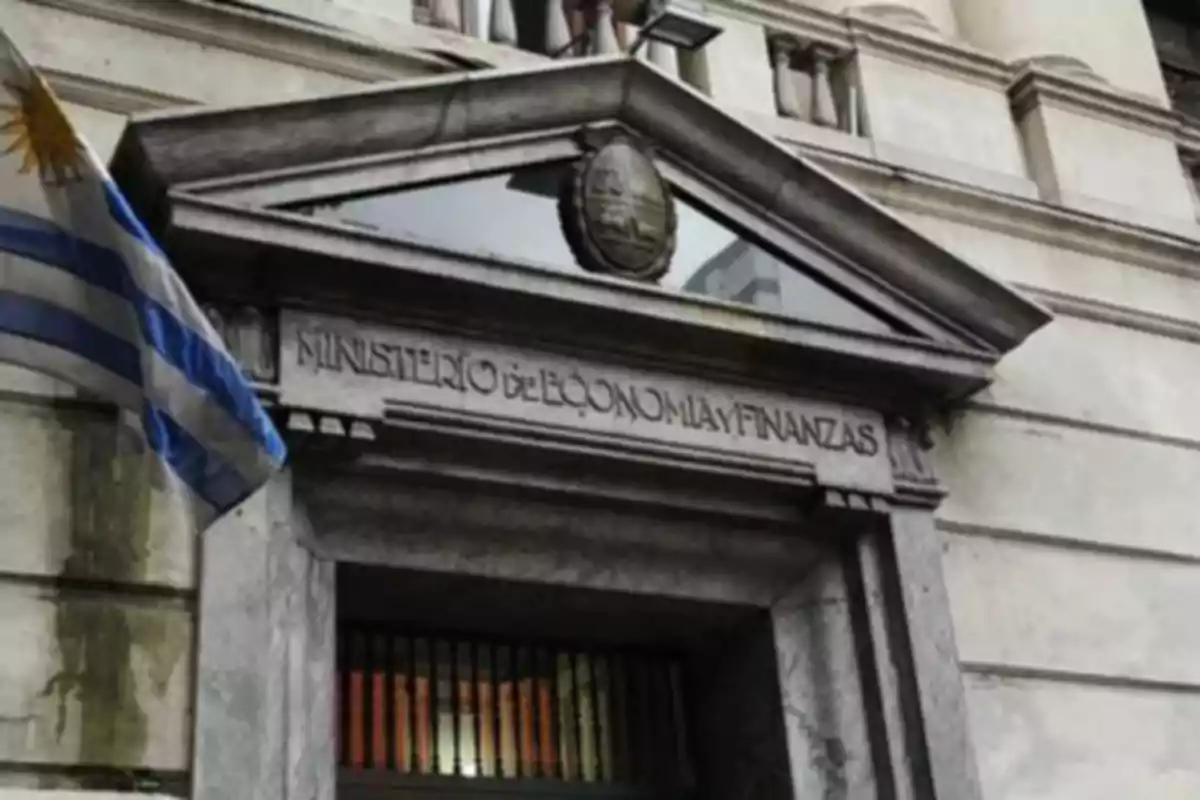
In Uruguay, the god is the State: progressivism, centralism, and the idolatry of the State
The Leviathan above everything
In recent decades, the world has witnessed a silent yet devastating phenomenon: the consolidation of a political culture that not only claims the State as a manager but sacralizes it. Under the mantle of progressivism, a symbolic, academic, and communicational framework has elevated the state apparatus to the status of moral arbiter, source of meaning, and the only valid tool for ordering social life. This phenomenon is not limited to government decisions; it is a transformation of the way societies understand power, truth, and freedom. In Uruguay, a country with a long tradition of democratic stability and a political system deeply rooted in its traditional parties, this process takes on particular but no less unsettling nuances.
Centralism: a structural disease
Political power naturally tends to concentrate, and progressivism has managed to capitalize on that historical inclination. Centralism is not just a form of state organization; it is a civilizational pattern. Its advance erodes autonomy, reduces the decision-making capacity of communities, and undermines property rights, which come to be understood as concessions from the State rather than individual guarantees. In Uruguay, centralism has been a historical constant, reinforced by the hegemony of Montevideo over the country's interior. Since the 19th century, the traditional parties—the National Party (Blanco) and the Colorado Party—have competed for control of the centralized state apparatus, consolidating a model in which key decisions are made in the capital, leaving the interior in a subordinate role.

In centralized models, bad decisions are not isolated: they are replicated, imposed, and institutionalized. The possibility of correcting errors through the plurality of jurisdictions disappears, and with it, the freedom to choose alternative normative frameworks also disappears. In Uruguay, the lack of effective decentralization has been a recurring criticism of the traditional parties, which, despite their ideological differences, have maintained a system of clientelist co-participation that distributes state resources among their electoral bases, without questioning the centrality of state power. This model, described as a "struggle for the distribution of state resources without major ideological distinctions," has eroded the capacity for political innovation and has fueled the perception of traditional parties as ossified structures, more concerned with perpetuating themselves than with transforming.
Progressivism as a dominant culture
More than a political program, progressivism has evolved into a totalizing culture. It doesn't present itself as an ideology but as a worldview that defines what can be said, thought, or desired. Its hegemony is not built in parliaments but in the media, universities, networks, and school textbooks. In Uruguay, this dynamic is evident in the rise of the Broad Front (FA), which, since its founding in 1971 and especially after governing between 2005 and 2020, has consolidated a progressive discourse that permeates cultural and educational institutions. However, the traditional parties have not been immune to this trend. Both the Colorado Party and the National Party have adopted, to a greater or lesser extent, elements of progressivism to remain relevant, diluting their historical identities in an effort to capture the moral consensus of the era.
Those who deviate from the dominant consensus are marked through a sophisticated system of symbolic delegitimization. In the Uruguayan context, this exclusion manifests in the difficulty of traditional parties to articulate criticisms of progressivism without being accused of being retrograde or extreme right-wing.
The engineering of language and the moralization of dissent
Progressivism has achieved one of the most effective operations of modern power: controlling language. Through labels, slogans, and emotionally charged terms, it has delineated the framework of public discourse. In Uruguay, this control is visible in debates on issues such as gender equality, social rights, or the memory of the dictatorship (1973-1985). The traditional parties have been accused of yielding to this linguistic engineering, adopting terms and frameworks imposed by the FA to avoid being stigmatized. This inability to propose their own language reflects a structural weakness: the traditional parties have not only lost electoral ground but also the ability to shape the cultural narrative, allowing progressivism to define the terms of the debate.

This linguistic engineering is not accidental. It functions as a system of symbolic exclusion that punishes those who do not align with the moral commandments of the moment. Meanwhile, the traditional parties have avoided directly confronting these mechanisms, opting for a "lukewarmness."
Science, media, and academia: legitimizers of the new dogma
All power needs legitimization. In this case, the institutional tripod that supports the dominant progressivism is composed of academia, traditional media, and increasingly essentialized science. In Uruguay, the University of the Republic has played a key role in the dissemination of progressive ideas, while the media have amplified narratives that reinforce the centrality of the State as a solution to social problems. The traditional parties, far from countering this trend, have contributed to it by maintaining a system of politically managed public companies, where positions are distributed according to party loyalties, perpetuating a culture of clientelism that legitimizes state intervention. This practice, criticized for decades, reflects how the traditional parties have been complicit in the sacralization of the State, prioritizing the control of its resources over efficiency or citizen autonomy.
During the pandemic, this alliance reached its climax: political decisions cloaked in scientific neutrality, censorship justified as protection of the common good, and dissent treated as a threat. In Uruguay, the management of the pandemic by the Multicolor Coalition (2020-2025), led by the National Party and supported by the Colorado Party, was presented as a technical success, but it was not without criticism for its centralized approach and for limiting public debate on measures such as vaccination or restrictions. The lack of robust opposition from the traditional parties to these dynamics reinforced the perception that all political actors ultimately accept the primacy of the State as the supreme arbiter.
The sacralization of the State: from administrator to idol
The deepest phenomenon is not political but symbolic. The modern State, far from being a neutral tool, has come to occupy the place once held by gods. In Uruguay, this state idolatry has deep roots in Colorado Batllism, which in the early 20th century turned the State into an agent of modernization and welfare. However, what began as a progressive vision has transformed into a structural dependency, where both the traditional parties and the FA vie for control of the State without questioning its centrality. The Multicolor Coalition, which took power in 2020 after 15 years of FA governments, did not break with this model but adapted it to its own logic, maintaining a system of prebends and inter-party agreements that reinforce the idea of the State as the ultimate source of legitimacy.

This state idolatry has emptied the idea of citizenship, replaced by the figure of the grateful subject. The traditional parties have contributed to this process by prioritizing clientelism and co-participation in power over the promotion of individual sovereignty. Their inability to articulate an alternative vision that limits state power has relegated them to a secondary role in the face of the rise of the FA, which has managed to capitalize on the disenchantment with the traditional parties to present itself as the only viable alternative, although equally dependent on the State as an idol.
Recent political context in Uruguay
The recent Uruguayan political landscape reflects these tensions. Since the return to democracy in 1985, Uruguay has maintained remarkable stability, with peaceful transfers of power between the Colorado Party, the National Party, and the FA. However, the historical dominance of the traditional parties has eroded. In the 2019 elections, the FA lost power to the Multicolor Coalition, led by Luis Lacalle Pou (National Party), which included the Colorado Party, Cabildo Abierto, and other minor parties. This change marked the end of 15 years of progressive governments but did not imply a break with the centralized state model.
The inauguration of Yamandú Orsi (FA) in March 2025, following his victory in the 2024 elections, was celebrated as an example of political coexistence, with a conciliatory speech that highlighted Uruguay's negotiating tradition. However, this harmony can also be interpreted as a tacit acceptance of the centrality of the State by all political actors. The strength of Uruguayan parties, which enjoy unusual citizen acceptance in the region, has not prevented them from being criticized for their lack of innovation and for perpetuating a system where state power is unquestionable.
The emergence of Cabildo Abierto in 2019, the first party in a century not stemming from a split in the traditional parties, signaled discontent with the political establishment, including the traditional parties, accused of ideological lukewarmness and yielding to the dominant progressivism. Likewise, the appearance of a new liberal party in 2025, critical of the "complexed right" and the "lukewarmness" of the traditional parties, evidences growing dissatisfaction with their inability to challenge the statist and progressive consensus.
Rethinking freedom in times of worship
True dissent today doesn't consist of changing parties or acronyms but in questioning the very altar on which the new symbolic order has been built. In Uruguay, this means challenging the hegemony of the centralized State, which the traditional parties have sustained for almost two centuries. The criticism of these parties lies not only in their clientelism or loss of ideological identity but in their complicity with a system that sacralizes the State, limiting individual and community autonomy.
It is time to break the spell. To rethink freedom not as a concession but as an original right. In Uruguay, this requires rediscussing the role of the traditional parties, whose history is inseparable from the nation, but whose inability to adapt to the challenges of the present has turned them into guardians of a status quo that stifles plurality. Recovering decentralization, individual sovereignty, and institutional pluralism is an act of cultural as much as political resistance. Only then can a Uruguay be built where the State is a servant of the citizens, not their idol.
More posts: